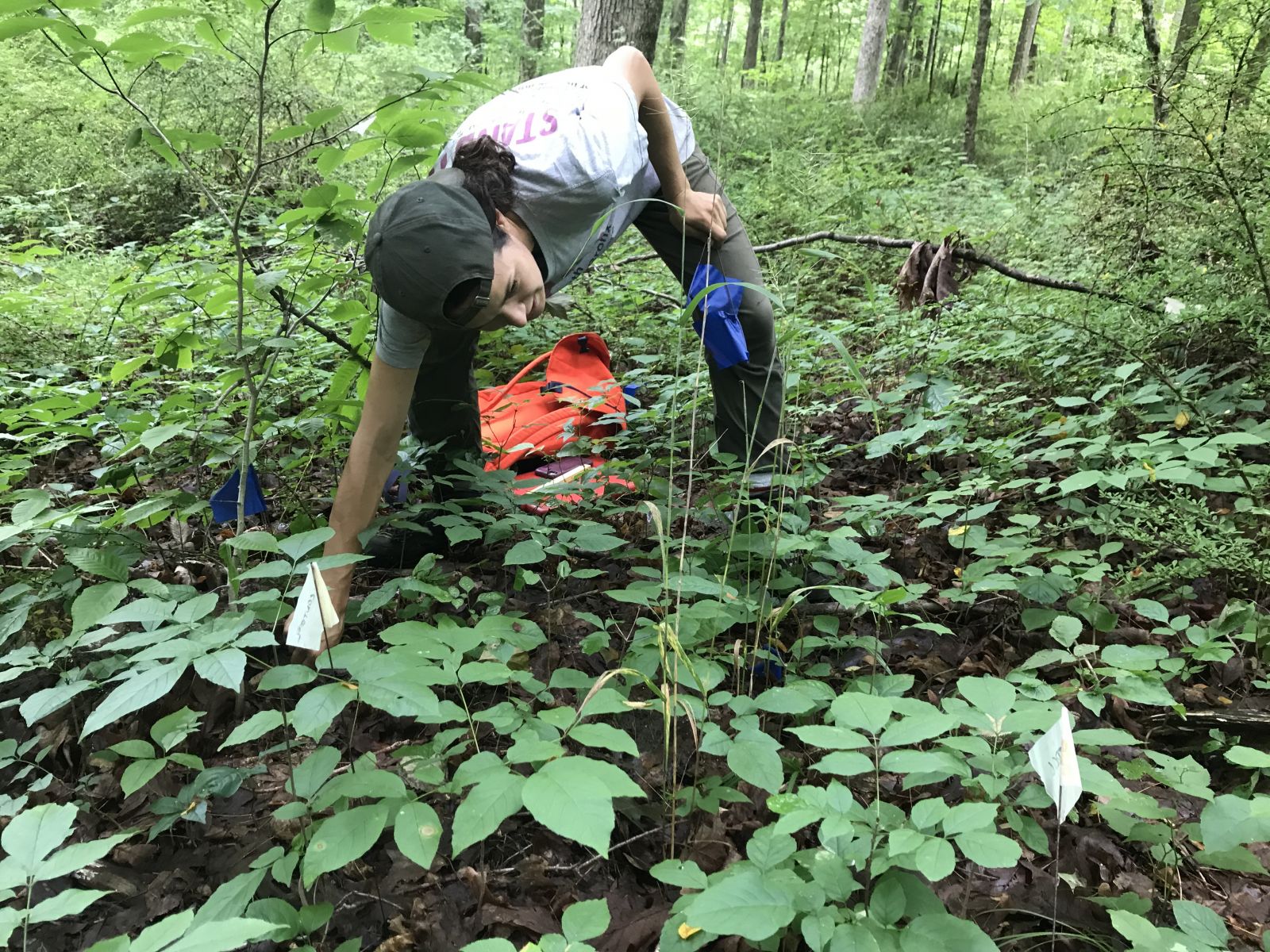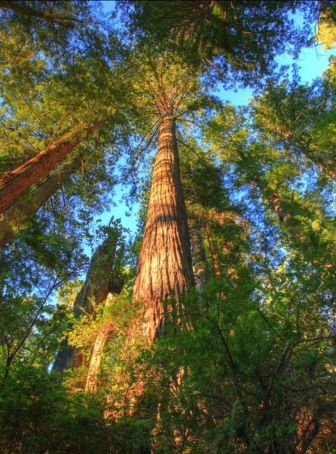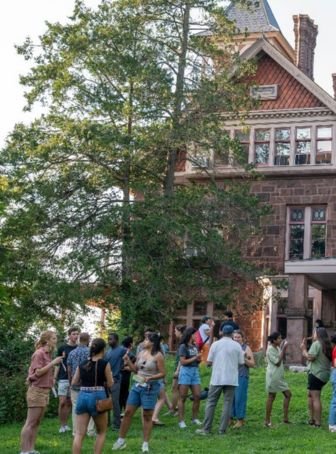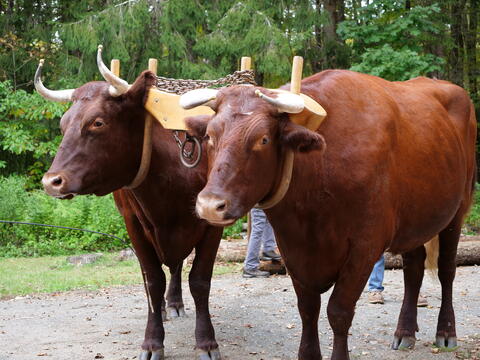
By Sara Santiago ’19 MF
Forest ecosystem ecologist Eli Ward ’18 MFS, ’23 PhD is making the one-mile move up Prospect Street from Greeley Memorial Laboratory and Marsh Hall to The Connecticut Agricultural Experiment Station, the first agricultural experiment station in the United States. Ward joins the Station as its first female forest ecologist, introduced by her predecessor Dr. Jeffrey Ward as the sixth person in this position since the Station’s founding in 1875. Like her predecessor, Ward will joins the Station shortly after defending her dissertation, titled “The Functional Effects of Tree and Shrub Mycorrhizal Associations on Soil Organic Matter Dynamics in Forests.” Her new role will focus on translating her ecological research into practice with the goal of informing management to promote structural, compositional, and age-class diversity in Connecticut’s forests to improve forest resiliency to environmental stressors across the state.
Ward entered the Master of Forest Science degree at The Forest School at the Yale School of the Environment in fall 2016 and has been a well-known researcher and mentor during her several years at the School. She was often adorned in bright orange, maneuvering through mountain laurel while spending her summers at Yale-Myers Forest conducting research in shelterwoods and instructing the MODs summer masters orientation.
In her new position as Forest Ecologist, Ward’s focus will entirely revolve around applied research. Ward is poised to develop a research program at the Station that integrates her ongoing work with long-term monitoring projects throughout the state as well as new avenues of research guided by the interests and experiences of local forest practitioners and landowners. Ward is excited about the flexibility she has in creating this program and the opportunity to work with an interdisciplinary team of staff entomologists and pathologists to create a full view of forest ecosystem health. Through these collaborations, she will be able to investigate the effects of emerging forest health issues, such as beech leaf disease, on regeneration dynamics and forest carbon cycling.

Ward surveys understory plants at a Regional Water Authority site.
In addition to her dissertation research, Ward will continue her ongoing research focused on the effects of irregular shelterwood harvests on regeneration and soil carbon dynamics at Yale-Myers Forest and competitive dynamics between regenerating trees and invasive plants in managed forest stands at Yale-Myers Forest and on Regional Water Authority land.
When asked what she is excited about at the Station and what she will miss at The Forest School, Ward said that she looks forward to continuing her research in the plots she has established at Yale-Myers Forest— which will allow her to see the effects of active forest management over the long-term—and to continue collaborating with centers, programs, and initiatives at The Forest School, such as the Urban Resources Initiative and the Yale Applied Science Synthesis Program. She will miss lecturing and instructing but aims to stay engaged with students at the School by partnering with masters students interested in conducting forest science research in Connecticut.
We congratulate Eli on her research accomplishments and look forward to continued collaborations in New Haven and in the woods!
More stories on Ward’s research over the past few years:







